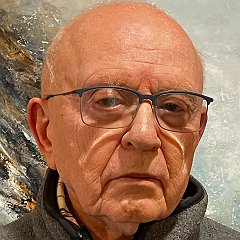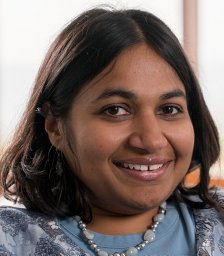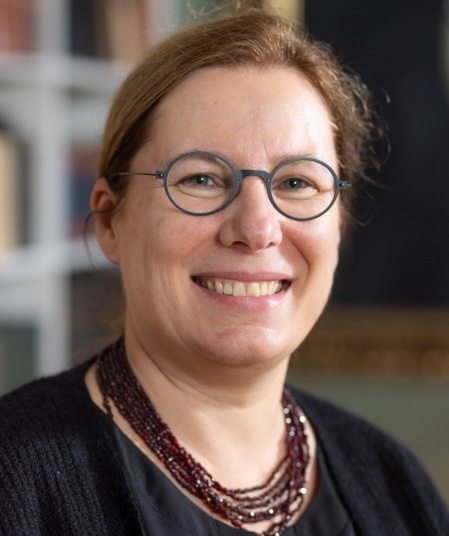At ICSE 2025 we are excited to present the following three keynote speakers:
Wednesday April 30 Keynote: David Lorge Parnas
Title: Regulation of AI and Other Untrustworthy Software
 Because of the growing publicity about software that is labelled “Artificial Intelligence“ (AI), and the many warnings that AI can be dangerous, there is increasing demand that governments and international organizations regulate the use of AI. To write useful regulations, we must understand why AI software has always been, and always will be, untrustworthy. We must also understand why it will be very difficult to regulate AI software as such.
Because of the growing publicity about software that is labelled “Artificial Intelligence“ (AI), and the many warnings that AI can be dangerous, there is increasing demand that governments and international organizations regulate the use of AI. To write useful regulations, we must understand why AI software has always been, and always will be, untrustworthy. We must also understand why it will be very difficult to regulate AI software as such.
Stricter regulation of software that is important to its users is badly needed and long overdue. Safety regulations for critical software will also protect us against potentially dangerous “AI”. A set of properties that should be required of all critical computer systems and can be the basis of useful regulations is proposed.
Bio: David Lorge Parnas began studying professional software development in 1969. He is best known for the concept of information hiding, methods of precise software documentation, and advocacy for professionalism. He taught at Carnegie Mellon, the Technische Hochschule Darmstadt, McMaster University, the University of Limerick among others. He has received four honorary doctorates and is a Fellow of the Royal Society of Canada, the Royal Irish Academy, the Canadian Academy of Engineering, the Gesellschaft für Informatik, the ACM and the IEEE.
Thursday May 1 Keynote: Neha Rungta, Amazon Web Services
Title: Engineering correctness for a domain
 At Amazon Web Services (AWS), our customers manage a diverse array of resources - databases, compute, storage, and analytics - all configured to meet their specific business, security, and governance needs. They often ask, “Have I configured these resources correctly?” This seemingly simple question led us on a fascinating journey of developing a domain-specific language (DSL) for defining configuration checking rules and proving that they are correct. Our goal was ambitious: create a language that’s easy to author, capable of proving rule correctness, and adaptable to AWS’s continuous evolution. The more we restricted our language, the more powerful it became. This realization brought new meaning to the phrase “less is more.”
At Amazon Web Services (AWS), our customers manage a diverse array of resources - databases, compute, storage, and analytics - all configured to meet their specific business, security, and governance needs. They often ask, “Have I configured these resources correctly?” This seemingly simple question led us on a fascinating journey of developing a domain-specific language (DSL) for defining configuration checking rules and proving that they are correct. Our goal was ambitious: create a language that’s easy to author, capable of proving rule correctness, and adaptable to AWS’s continuous evolution. The more we restricted our language, the more powerful it became. This realization brought new meaning to the phrase “less is more.”
Traditionally, proving correctness in software development is a burdensome task. Developers must define specifications without much guidance on their accuracy. Our domain-specific approach, however, turned this concept on its head. Instead of humans creating specifications for computers to check, we designed our system to generate potential specifications for humans to verify. Here’s how it works: our system automatically generates scenarios demonstrating when rules evaluate to true or false. These scenarios effectively create specifications. A security engineer can then review these cases, deciding whether the specification is valid or if the rule needs adjustment. This process of “automatically generating specifications” has revolutionized how we approach configuration rule checking at AWS.
The restrictiveness of our domain-specific language, far from being a limitation, became its strength. By narrowing our focus, we gained the ability to prove correctness more efficiently and effectively than ever before. This approach eased the burden on our developers and led to provably correct configuration checks. Our experience with this DSL at AWS has reinforced a valuable lesson: in the right context, specialization can outperform generalization, especially when it comes to proving correctness. By focusing on the specific needs of AWS configuration checking, we’ve created a tool that’s not just more efficient, but fundamentally more capable of ensuring our customers’ resources are configured correctly.
Bio: Neha Rungta is a Director of Science in AWS. Neha is a world-renowned expert in developing and applying automated reasoning techniques to industrial systems. Neha’s work in AWS has broken new ground in the scale of automated reasoning applications. She has launched security services such as Amazon S3 Block Public Access, IAM Access Analyzer, and now, the Cedar language and Amazon Verified Permissions. Before AWS, Neha was a Research Scientist at NASA Ames Research Center where she verified the correctness of unmanned space systems and conflict detection algorithms used in commercial aircraft.
Friday May 2 Keynote: Patricia Lago, Vrije Universiteit Amsterdam
Google Scholar / Website / Wikipedia
Title: Software Sustainability and its Engineering: How far have we come?
 Thanks to its digital transformation, society depends on software. This is expected to bring important benefits but at the same time is accompanied by worrisome constraints. The societal role of software and its engineering is not new. Nor is their need to be sustainable. But what does it mean, really? And how far have we come with our research?
Thanks to its digital transformation, society depends on software. This is expected to bring important benefits but at the same time is accompanied by worrisome constraints. The societal role of software and its engineering is not new. Nor is their need to be sustainable. But what does it mean, really? And how far have we come with our research?
This talk wants to trigger reflection on the research being done, its impact and its true contribution to the complex and urgent problems posed by both society and our planet.
Bio: Patricia Lago leads the Software and Sustainability Research Group at the Vrije Universiteit Amsterdam, where she focuses on smart, sustainable and industry-relevant research through disciplined and quantifiable methods. She has worked in on domains such as smart cities, digital transformation and digital healthcare. She received an honorary doctorate from the Norwegian University of Science and Technology in 2022.